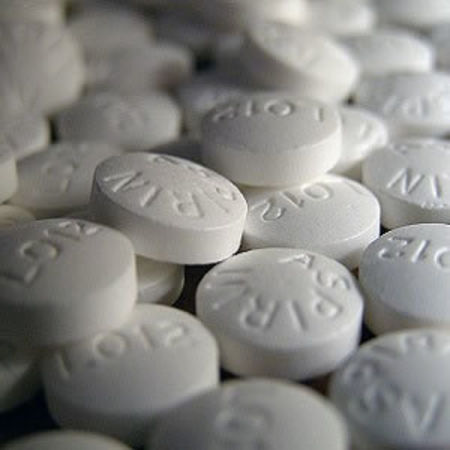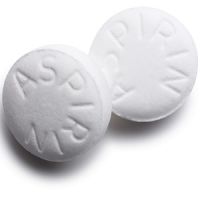Since decades, it is believed that aspirin reduces the risk of cardiovascular problems. However, new research from University of Florida shows that aspirin may provide little or no benefit for certain patients who have plaque buildup in their arteries. Findings are published in Clinical Cardiology.
Researchers tracked the health histories of more than 33,000 patients with atherosclerosis. Their analysis showed that aspirin is marginally beneficial for those who have had a previous heart attack, stroke or blood flow issues involving arteries but no apparent benefit was observed in atherosclerosis patients who had no prior heart attack or stroke.
Out of the 21,000 study patients who had a previous heart attack or stroke, the risk of subsequent cardiovascular death, heart attack or stroke was found to be marginally lower among aspirin users but in those who had not experienced a heart attack or stroke, no such effect was observed. Risk of cardiovascular death, heart attack and stroke was 10.7% among aspirin users and 10.5% among non-users.
Anthony Bavry, MD, an associate professor in the UF College of Medicine's department of medicine and a cardiologist at the Malcom Randall Veterans Affairs Medical Center in Gainesville points out that before declaring that aspirin has little or no effect on these patients, there is a need to conduct clinical trials to confirm these observations. While these findings do take a bit of the luster off the use of aspirin, there is no denying the vital role aspirin can play in immediate situations such as when a heart attack or stroke is underway or suspected. The benefits of aspirin in acute situations continues to stay as is.
One group was identified that got some benefit from aspirin. This included patients who had a coronary bypass or stent but no history of stroke, heart attack or arterial blood-flow condition. Dr Bavry cautions that these patients should continue to stay on their aspirin regimen. He also advises that patients with atherosclerosis or peripheral vascular disease should not quit aspirin therapy on their own either without discussing it with their physician.
However, highlighting the fact that aspirin may not have any benefit for some patients is necessary as the medicine is associated with complications including gastrointestinal bleeding and bleeding in the brain.
"The cardiology community needs to appreciate that aspirin deserves ongoing study. There are many individuals who may not be deriving a benefit from aspirin. If we can identify those patients and spare them from aspirin, we're doing a good thing," he said.
Source: University of Florida
Image Credit: 14 Mostafa&zeyad
Latest Articles
aspirin, Hard Arteries, plaque buildup, cardiovascular problems
Since decades, it has been believed that aspirin reduces the risk of cardiovascular problems. However, new research from University of Florida shows that aspirin may provide little or no benefit for certain patients who have plaque buildup in their arteri



























